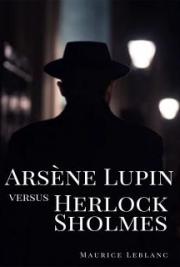Chapter 27
Peter was going back to America and still he had not told Harmony he loved her. It was necessary that he go back. His money had about given out, and there was no way to get more save by earning it. The drain of Jimmy's illness, the inevitable expense of the small grave and the tiny stone Peter had insisted on buying, had made retreat his only course. True, Le Grande had wished to defray all expenses, but Peter was inexorable. No money earned as the dancer earned hers should purchase peaceful rest for the loved little body. And after seeing Peter's eyes the dancer had not insisted.
A week had seen many changes. Marie was gone. After a conference between Stewart and Peter that had been decided on. Stewart raised the money somehow, and Peter saw her off, palpitant and eager, with the pin he had sent her to Semmering at her throat. She kissed Peter on the cheek in the station, rather to his embarrassment. From the lowered window, as the train pulled out, she waved a moist handkerchief.
"I shall be very good," she promised him. The last words he heard above the grinding of the train were her cheery: "To America!"
Peter was living alone in the Street of Seven Stars, getting food where he might happen to be, buying a little now and then from the delicatessen shop across the street. For Harmony had gone back to the house in the Wollbadgasse. She had stayed until all was over and until Marie's small preparations for departure were over. Then, while Peter was at the station, she slipped away again. But this time she left her address. She wrote:--
"You will come to visit me, dear Peter, because I was so lonely before and that is unnecessary now. But you must know that I cannot stay in the Siebensternstrasse. We have each our own fight to make, and you have been trying to fight for us all, for Marie, for dear little Jimmy, for me. You must get back to work now; you have lost so much time. And I am managing well. The Frau Professor is back and will take an evening lesson, and soon I shall have more money from Fraulein Reiff. You can see how things are looking up for me. In a few months I shall be able to renew my music lessons. And then, Peter,--the career!
"HARMONY."
Her address was beneath.
Peter had suffered much. He was thinner, grayer, and as he stood with the letter in his hand he felt that Harmony was right. He could offer her nothing but his shabby self, his problematic future. Perhaps, surely, everything would have been settled, without reason, had he only once taken the girl in his arms, told her she was the breath of life itself to him. But adversity, while it had roused his fighting spirit in everything else, had sapped his confidence.
He had found the letter on his dressing-table, and he found himself confronting his image over it, a tall, stooping figure, a tired, lined face, a coat that bore the impress of many days with a sick child's head against its breast.
So it was over. She had come back and gone again, and this time he must let her go. Who was he to detain her? She would carry herself on to success, he felt; she had youth, hope, beauty and ability. And she had proved the thing he had not dared to believe, that she could take care of herself in the old city. Only--to go away and leave her there!
McLean would remain. No doubt he already had Harmony's address in the Wollbadgasse. Peter was not subtle, no psychologist, but he had seen during the last few days how the boy watched Harmony's every word, every gesture. And, perhaps, when loneliness and hard work began to tell on her, McLean's devotion would win its reward. McLean's devotion, with all that it meant, the lessons again, community of taste, their common youth! Peter felt old, very tired.
Nevertheless he went that night to the Wollbadgasse. He sent his gray suit to the Portier's wife to be pressed, and getting out his surgical case, as he had once before in the Pension Schwarz, he sewed a button on his overcoat, using the curved needle and the catgut and working with surgeon's precision. Then, still working very carefully, he trimmed the edges of graying hair over his ears, trimmed his cuffs, trimmed his best silk tie, now almost hopeless. He blacked his shoes, and the suit not coming, he donned his dressinggown and went into Jimmy's room to feed the mice. Peter stood a moment beside the smooth white bed with his face working. The wooden sentry still stood on the bedside table.
It was in Peter's mind to take the mice to Harmony, confess his defeat and approaching retreat, and ask her to care for them. Then he decided against this palpable appeal for sympathy, elected to go empty-handed and discover merely how comfortable she was or was not. When the time came he would slip out of her life, sending her a letter and leaving McLean on guard.
Harmony was at home. Peter climbed the dark staircase--where Harmony had met the little Georgiev, and where he had gone down to his death--climbed steadily, but without his usual elasticity. The place appalled him--its gloom, its dinginess, its somber quiet. In the daylight, with the pigeons on the sills and the morning sunlight printing the cross of the church steeple on the whitewashed wall, it was peaceful, cloisterlike, with landings that were crypts. But at night it was almost terrifying, that staircase.
Harmony was playing. Peter heard her when he reached the upper landing, playing a sad little strain that gripped his heart. He waited outside before ringing, heard her begin something determinedly cheerful, falter, cease altogether. Peter rang.
Harmony herself admitted him. Perhaps--oh, certainly she had expected him! It would be Peter, of course, to come and see how she was getting on, how she was housed. She held out her hand and Peter took it. Still no words, only a half smile from her and no smile at all from Peter, but his heart in his eyes.
"I hoped you would come, Peter. We may have the reception room."
"You knew I would come," said Peter. "The reception room?"
"Where customers wait." She still carried her violin, and slipped back to her room to put it away. Peter had a glimpse of its poverty and its meagerness. He drew a long breath.
Monia was at the opera, and the Hungarian sat in the kitchen knitting a stocking. The reception room was warm from the day's fire, and in order. All the pins and scraps of the day had been swept up, and the portieres that made fitting-rooms of the corners were pushed back. Peter saw only a big room with empty corners, and that at a glance. His eyes were Harmony's.
He sat down awkwardly on a stiff chair, Harmony on a velvet settee. They were suddenly two strangers meeting for the first time. In the squalor of the Pension Schwarz, in the comfortable intimacies of the Street of Seven Stars, they had been easy, unconstrained. Now suddenly Peter was tongue-tied. Only one thing in him clamored for utterance, and that he sternly silenced.
"I--I could not stay there, Peter. You understood?"
"No. Of course, I understood."
"You were not angry?"
"Why should I be angry? You came, like an angel of light, when I needed you. Only, of course,--"
"Yes?"
"I'll not say that, I think."
"Please say it, Peter!"
Peter writhed; looked everywhere but at her.
"Please, Peter. You said I always came when you needed me, only--"
"Only--I always need you!" Peter, Peter!
"Not always, I think. Of course, when one is in trouble one needs a woman; but--"
"Well, of course--but--I'm generally in trouble, Harry dear." Frightfully ashamed of himself by that time was Peter, ashamed of his weakness. He sought to give a casual air to the speech by stooping for a neglected pin on the carpet. By the time he had stuck it in his lapel he had saved his mental forces from the rout of Harmony's eyes.
His next speech he made to the center table, and missed a most delectable look in the aforesaid eyes.
"I didn't come to be silly," he said to the table. "I hate people who whine, and I've got into a damnable habit of being sorry for myself! It's to laugh, isn't it, a great, hulking carcass like me, to be--"
"Peter," said Harmony softly, "aren't you going to look at me?"
"I'm afraid."
"That's cowardice. And I've fixed my hair a new way. Do you like it?"
"Splendid," said Peter to the center table.
"You didn't look!"
The rout of Harmony's eyes was supplemented by the rout of Harmony's hair. Peter, goaded, got up and walked about. Harmony was half exasperated; she would have boxed Peter's ears with a tender hand had she dared.
His hands thrust savagely in his pockets, Peter turned and faced her at last.
"First of all," he said, "I am going back to America, Harmony. I've got all I can get here, all I came for--" He stopped, seeing her face. "Well, of course, that's not true, I haven't. But I'm going back, anyhow. You needn't look so stricken: I haven't lost my chance. I'll come back sometime again and finish, when I've earned enough to do it."
"You will never come back, Peter. You have spent all your money on others, and now you are going back just where you were, and--you are leaving me here alone!"
"You are alone, anyhow," said Peter, "making your own way and getting along. And McLean will be here."
"Are you turning me over to him?"
No reply. Peter was pacing the floor.
"Peter!"
"Yes, dear?"
"Do you remember the night in Anna's room at the Schwartz when you proposed to me?"
No reply. Peter found another pin.
"And that night in the old lodge when you proposed to me again?"
Peter turned and looked at her, at her slender, swaying young figure, her luminous eyes, her parted, childish lips.
"Peter, I want you to--to ask me again."
"No!"
"Why?"
"Now, listen to me, Harmony. You're sorry for me, that's all; I don't want to be pitied. You stay here and work. You'll do big things. I had a talk with the master while I was searching for you, and he says you can do anything. But he looked at me--and a sight I was with worry and fright--and he warned me off, Harmony. He says you must not marry."
"Old pig!" said Harmony. "I will marry if I please."
Nevertheless Peter's refusal and the master's speech had told somewhat. She was colder, less vibrant. Peter came to her, stood close, looking down at her.
"I've said a lot I didn't mean to," he said. "There's only one thing I haven't said, I oughtn't to say it, dear. I'm not going to marry you--I won't have such a thing on my conscience. But it doesn't hurt a woman to know that a man loves her. I love you, dear. You're my heaven and my earth--even my God, I'm afraid. But I will not marry you."
"Not even if I ask you to?"
"Not even then, dear. To share my struggle--"
"I see," slowly. "It is to be a struggle?"
"A hard fight, Harmony. I'm a pauper practically."
"And what am I?"
"Two poverties don't make a wealth, even of happiness," said Peter steadily. "In the time to come, when you would think of what you might have been, it would be a thousand deaths to me, dear."
"People have married, women have married and carried on their work, too, Peter."
"Not your sort of women or your sort of work. And not my sort of man, Harry. I'm jealous--jealous of every one about you. It would have to be the music or me."
"And you make the choice!" said Harmony proudly. "Very well, Peter, I shall do as you say. But I think it is a very curious sort of love."
"I wonder," Peter cried, "if you realize what love it is that loves you enough to give you up."
"You have not asked me if I care, Peter."
Peter looked at her. She was very near to tears, very sad, very beautiful.
"I'm afraid to ask," said Peter, and picking up his hat he made for the door. There he turned, looked back, was lost.
"My sweetest heart!" he cried, and took her in his hungry arms. But even then, with her arms about his neck at last, with her slender body held to him, her head on his shoulder, his lips to her soft throat, Peter put her from him as a starving man might put away food.
He held her off and looked at her.
"I'm a fool and a weakling," he said gravely. "I love you so much that I would sacrifice you. You are very lovely, my girl, my girl! As long as I live I shall carry your image in my heart."
Ah, what the little Georgiev had said on his way to the death that waited down the staircase. Peter, not daring to look at her again, put away her detaining hand, squared his shoulders, went to the door.
"Good-bye, Harmony," he said steadily. "Always in my heart!"
Very near the end now: the little Marie on the way to America, with the recording angel opening a new page in life's ledger for her and a red-ink line erasing the other; with Jimmy and his daddy wandering through the heaven of friendly adventure and green fields, hand in hand; with the carrier resting after its labors in the pigeon house by the rose-fields of Sofia; with the sentry casting martial shadows through the barred windows of the hospital; and the little Georgiev, about to die, dividing his heart, as a heritage, between his country and a young girl.
Very near the end, with the morning light of the next day shining into the salon of Maria Theresa and on to Peter's open trunk and shabby wardrobe spread over chairs. An end of trunks and departure, as was the beginning.
Early morning at the Gottesacker, or God's acre, whence little Jimmy had started on his comfortable journey. Early morning on the frost-covered grass, the frozen roads, the snap and sparkle of the Donau. Harmony had taken her problem there, in the early hour before Monia would summon her to labor--took her problem and found her answer.
The great cemetery was still and deserted. Harmony, none too warmly clad, walked briskly, a bunch of flowers in oiled paper against the cold. Already the air carried a hint of spring; there was a feeling of resurrection and promise. The dead earth felt alive underfoot.
Harmony knelt by the grave and said the little prayer the child had repeated at night and morning. And, because he had loved it, with some vague feeling of giving him comfort, she recited the little verse:--
"Ah well! For us all some sweet hope lies Deeply buried from human eyes: And in the hereafter, angels may Roll the stone from its grave away."
When she looked up Le Grande was standing beside her.
There was no scene, hardly any tears. She had brought out a great bunch of roses that bore only too clearly the stamp of whence they came. One of the pickaninnies had carried the box and stood impassively by, gazing at Harmony.
Le Grande placed her flowers on the grave. They almost covered it, quite eclipsed Harmony's.
"I come here every morning," she said simply.
She had a cab waiting, and offered to drive Harmony back to the city. Her quiet almost irritated Harmony, until she had looked once into the woman's eyes. After that she knew. It was on the drive back, with the little darky on the box beside the driver, that Harmony got her answer.
Le Grande put a hand over Harmony's.
"I tried to tell you before how good I know you were to him."
"We loved him."
"And I resented it. But Dr. Byrne was right--I was not a fit person to--to have him."
"It was not that--not only that--"
"Did he ever ask for me? But of course not."
"No, he had no remembrance." Silence for a moment. The loose windows of the cab clattered.
"I loved him very much when he came," said Le Grande, "although I did not want him. I had been told I could have a career on the stage. Ah, my dear, I chose the career--and look at me! What have I? A grave in the cemetery back there, and on it roses sent me by a man I loathe! If I could live it over again!"
The answer was very close now:--
"Would you stay at home?"
"Who knows, I being I? And my husband did not love me. It was the boy always. There is only one thing worth while--the love of a good man. I have lived, lived hard. And I know."
"But supposing that one has real ability--I mean some achievement already, and a promise--"
Le Grande turned and looked at Harmony shrewdly.
"I see. You are a musician, I believe?"
"Yes."
"And--it is Dr. Byrne?"
"Yes."
Le Grande bent forward earnestly.
"My child," she said, "if one man in all the world looked at me as your doctor looks at you, I--I would be a better woman."
"And my music?"
"Play for your children, as you played for my little boy."
Peter was packing: wrapping medical books in old coats, putting clean collars next to boots, folding pajamas and such-like negligible garments with great care and putting in his dresscoat in a roll. His pipes took time, and the wooden sentry he packed with great care and a bit of healthy emotion. Once or twice he came across trifles of Harmony's, and he put them carefully aside--the sweater coat, a folded handkerchief, a bow she had worn at her throat. The bow brought back the night before and that reckless kiss on her white throat. Well for Peter to get away if he is to keep his resolution, when the sight of a ribbon bow can bring that look of suffering into his eyes.
The Portier below was polishing floors, right foot, left foot, any foot at all. And as he polished he sang in a throaty tenor.
"Kennst du das Land wo die Citronen bluhen," he sang at the top of his voice, and coughed, a bit of floor wax having got into the air. The antlers of the deer from the wildgame shop hung now in his bedroom. When the wildgame seller came over for coffee there would be a discussion probably. But were not the antlers of all deer similar?
The Portier's wife came to the doorway with a cooking fork in her hand.
"A cab," she announced, "with a devil's imp on the box. Perhaps it is that American dancer. Run and pretty thyself!"
It was too late for more than an upward twist of a mustache. Harmony was at the door, but not the sad-eyed Harmony of a week before or the undecided and troubled girl of before that. A radiant Harmony, this, who stood in the doorway, who wished them goodmorning, and ran up the old staircase with glowing eyes and a heart that leaped and throbbed. A woman now, this Harmony, one who had looked on life and learned; one who had chosen her fate and was running to meet it; one who feared only death, not life or anything that life could offer.
The door was not locked. Perhaps Peter was not up--not dressed. What did that matter? What did anything matter but Peter himself?
Peter, sorting out lectures on McBurney's Point, had come across a bit of paper that did not belong there, and was sitting by his open trunk, staring blindly at it:--
"You are very kind to me. Yes, indeed.
"H. W."
Quite the end now, with Harmony running across the room and dropping down on her knees among a riot of garments--down on her knees, with one arm round Peter's neck, drawing his tired head lower until she could kiss him.
"Oh, Peter, Peter, dear!" she cried. "I'll love you all my life if only you'll love me, and never, never let me go!"
Peter was dazed at first. He put his arms about her rather unsteadily, because he had given her up and had expected to go through the rest of life empty of arm and heart. And when one has one's arms set, as one may say, for loneliness and relinquishment it is rather difficult--Ah, but Peter got the way of it swiftly.
"Always," he said incoherently; "forever the two of us. Whatever comes, Harmony?"
"Whatever comes."
"And you'll not be sorry?"
"Not if you love me."
Peter kissed her on the eyes very solemnly.
"God helping me, I'll be good to you always. And I'll always love you."
He tried to hold her away from him for a moment after that, to tell her what she was doing, what she was giving up. She would not be reasoned with.
"I love you," was her answer to every line. And it was no divided allegiance she promised him. "Career? I shall have a career. Yours!"
"And your music?"
She colored, held him closer.
"Some day," she whispered, "I shall tell you about that."
Late winter morning in Vienna, with the school-children hurrying home, the Alserstrasse alive with humanity--soldiers and chimney-sweeps, housewives and beggars. Before the hospital the crowd lines up along the curb; the head waiter from the coffee-house across comes to the doorway and looks out. The sentry in front of the hospital ceases pacing and stands at attention.
In the street a small procession comes at the double quick--a handful of troopers, a black van with tiny, high-barred windows, more troopers.
Inside the van a Bulgarian spy going out to death--a swarthy little man with black eyes and short, thick hands, going out like a gentleman and a soldier to meet the God of patriots and lovers.
The sentry, who was only a soldier from Salzburg with one lung, was also a gentleman and a patriot. He uncovered his head.







